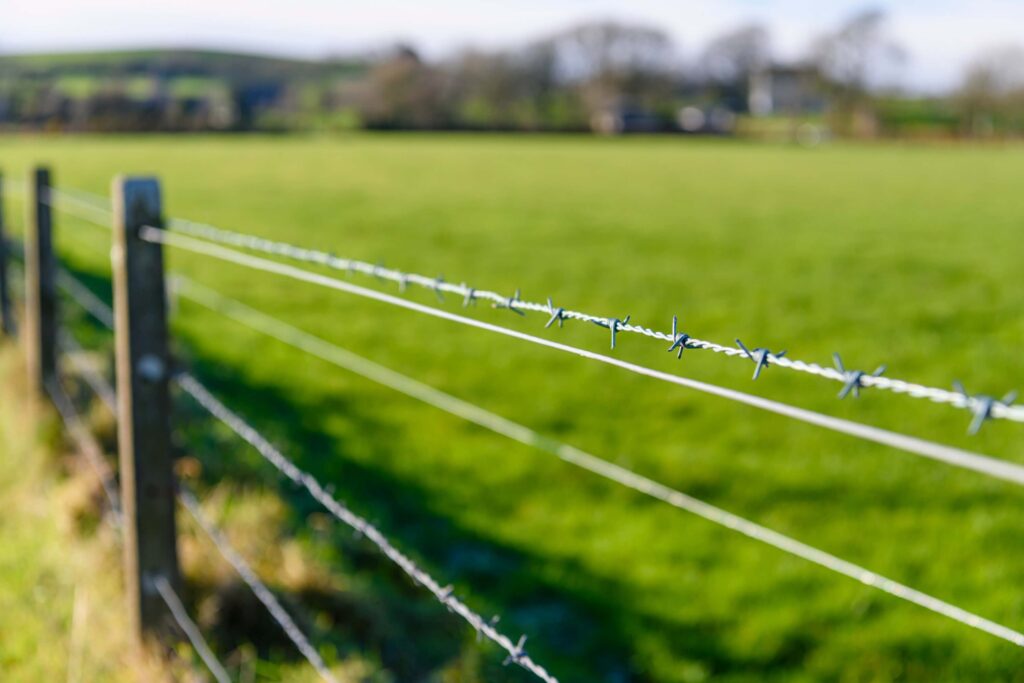
Property owners have a host of rights and responsibilities. Among the most confusing is if a landowner is liable for a trespasser’s injuries suffered on their property. The answer is complex and varies based on the situation, state laws, and the legal classification of the person entering your property. Understanding the nuances of this issue is essential to protecting your rights as a homeowner and mitigating potential legal risks.
Understanding Trespassing vs. Invitee Violations
The law recognizes the following three primary classifications of individuals who enter your property:
Invitees
Invitees are invited guests by the property owner, invited for a mutual benefit, such as customers visiting a business. Invitees are owed the highest duty of care, meaning property owners must actively inspect and maintain their premises to ensure safety, address potential hazards promptly, and provide adequate warnings about risks that may not be immediately obvious.
Licensees
Licensees are individuals who have entered your property with permission but not for commercial benefit. Property owners owe licensees a moderate duty of care, ensuring the property is free of known hazards otherwise, they may be liable for a trespasser’s injuries.
Trespassers
Trespassers are individuals who have entered your property without permission. Generally, property owners owe trespassers a minimal duty of care, primarily refraining from willful or wanton harm.
Understanding these distinctions is key to determining your responsibilities and potential liabilities.
Your Legal Rights as a Property Owner
As a property owner, you have the right to:
- Control Access: To prevent unauthorized entry, you can set boundaries to protect property, such as fencing or signage.
- Defend Against Intrusion: In most jurisdictions, you are permitted to remove discovered trespassers, though the methods must align with the law.
- Expect Reasonable Use of Your Property: Those invited onto your property must use it responsibly and not create undue risks for themselves or others.
However, these rights come with certain legal obligations, particularly if a trespasser is injured.
Liability Concerns for Homeowners
While property owners owe minimal duties to trespassers, liability may arise in certain circumstances.
Attractive Nuisances
If your property contains features that might attract children, such as a swimming pool or abandoned machinery, you may be liable for injuries under the “attractive nuisance” doctrine. Even as trespassers, children are owed a higher duty of care and legal obligation.
Willful or Wanton Harm
Wanton conduct, such as setting traps, using deadly force to remove a trespasser, or intentionally creating dangerous conditions for trespassers, can result in the property owner being held liable for injuries in such a situation. Courts view such actions as unreasonable and malicious.
Known Trespassers
If you are aware of continued trespassing, you may be required to address or warn about known dangers that pose safety hazards.
Negligent Maintenance
If a hazardous condition on your property injures a trespasser and you have been grossly negligent in maintaining the property, some jurisdiction’s state law may impose the property owner’s negligence.
Defenses Against Liability Claims
Homeowners have several defenses to ensure they are not liable for injuries. An experienced personal injury attorney at Roberts | Jeandron Law will explore your options and help you maintain your rights.
- No Duty of Care: If the injured party was a trespasser, you may argue that you owed them no duty beyond refraining from intentional harm.
- Contributory Negligence: If the trespasser acted recklessly or ignored clear warnings, you may argue that their negligence contributed to the injury.
- Assumption of Risk: If the property owner takes care to post signs or tries to warn trespassers, human beings who willingly enter hazardous land areas assume the risk and may be held liable.
- Compliance With Laws: Demonstrating that you followed all safety regulations, like posting signs and maintaining your property properly, can strengthen your defense.

Legal Precedents and Statutes
Legal precedents and statutes play a significant role in determining whether to hold the property owner liable. Here are some important points to consider:
- Case Law: Courts have repeatedly upheld that property owners owe limited duties to trespassers. However, exceptions like the attractive nuisance doctrine continue to shape outcomes.
- State-Specific Laws: Many states have unique rules regarding trespasser injuries. For example, California applies the attractive nuisance doctrine, particularly for protecting children, and emphasizes the importance of securing hazardous areas like swimming pools. Additionally, California law generally limits liability for injuries to adult trespassers unless the property owner acted with willful or wanton misconduct.
- Duty of Care Statutes: Some states codify the duty of care owed to various categories of entrants, providing clarity on homeowner obligations.
Roberts | Jeandron Law Approach
At Roberts | Jeandron Law, we specialize in helping homeowners and injured parties navigate the complexities of premises liability cases. Our approach includes:
Legal Representation
Whether you are a homeowner facing a lawsuit or someone injured on another’s property, our personal injury lawyers provide expert legal representation tailored to your needs.
Client Education
We prioritize educating our clients about their rights and responsibilities, empowering them to make informed decisions.
Proactive Measures
For property owners, we offer consultations to identify potential liability risks and implement safeguards.
Thorough Case Review
We meticulously analyze the facts, legal precedents, and statutes relevant to your case, ensuring a comprehensive defense or claim strategy.
Results-Oriented Approach
Our firm is dedicated to achieving favorable outcomes through negotiation or litigation.
Client Education and Proactive Measures
Preventative steps can reduce the likelihood of liability claims. Taking these proactive measures can minimize risks and demonstrate a commitment to safety, which can be crucial in the event of a liability claim.
- Install Clear Signage: Use “No Trespassing,” “Dangerous Dog,” or “Danger” signs to deter unauthorized entry and warn of a potentially dangerous condition.
- Secure the Property: Maintain fences, gates, and locks to restrict access.
- Address Hazards Promptly: Regularly inspect and repair dangerous conditions.
- Document Incidents: Keep records of any trespasser activity or incidents for potential legal defense.
By taking these measures, you protect yourself and demonstrate good faith in adhering to your responsibilities as a property owner.
Contact Roberts | Jeandron Law Today
Roberts | Jeandron Law is here to guide you through this complex legal landscape. Whether you need representation, advice, or proactive measures to safeguard your property, our experienced team is ready to assist. Contact us today for a free consultation to learn how we can protect your rights and ensure peace of mind as a property owner.

 By:
By: